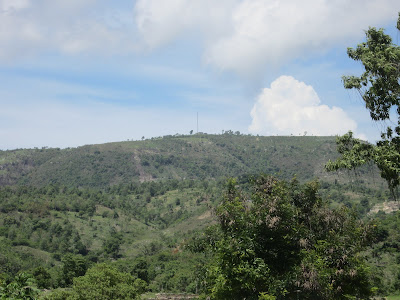Consider breathing. Thankfully, breathing takes place in the background of our day-to-day. And, though we value it, we generally don't have to think much about our breathing.
If you think about it, breathing is a spiritual exercise. The word spirit might literally be translated as breath. Holy Spirit literally means Holy Breath.
If you think about it, breathing is a spiritual exercise. The word spirit might literally be translated as breath. Holy Spirit literally means Holy Breath.
If “Spirit” is “Breath,” then spirituality is breath-ing. Leonard Sweet, in his book, Soul Salsa, puts it this way. “A spiritual life is one that breathes out the ‘breath of life.’ The body is God-breathed. It cannot help but breathe with regularity. The soul must will itself to breathe and live. It gasps for air until it finds its breath. Hence the Sabbath. The root of Sabbath means ‘to catch one’s breath.’ The faster and fuller you exhale, the more you need to inhale. The Bible is designed to transform your life. One of the biggest transformations is the formation of multilingual souls: souls that have learned the languages of exhaling and inhaling, of speech and silence, the interior rhythms of space and time.
“In other words, to breathe new being into the soul, we need to decentralize our Sabbath keeping. Sabbath does not come just once a week. Every day needs a holy hiatus. Every week needs to be well ventilated with sabbaticals.”
Many regard Sabbath simply as a day to “catch our breath” from the past week. We see it as a recovery time and only that. The “day of rest” should rest-ore, after all, right? We look forward to it like marathon runners look forward to the end of their race: a time to collapse and catch our breath. But is there more to Sabbath-keeping than simply restoring the breath spent during the race of the preceding week? Or do we ask, “Restoring our breath…. for what?” For what future purpose might God be re-storing our breath?
We have reduced the notion of rest to mean only recovery and in recovery our attention is on the past: recovering from long hours, hectic schedule, etc., etc. In this reduction we miss a major point: that rest is an appointment with God, a divine nexus where recovery from yesterday and preparation for tomorrow collide.
We have assumed that when God rested on Creation’s seventh day, that he was, in a sense, recovering from Divine Exhaustion. What if “rest” does not, in fact, mean “recovery”? What if God’s “day of rest,” of breathing, has value intrinsic to itself, apart from other days of the week? Breathing for breathing’s own sake? I think we can learn something from Isaiah’s prayer: “My soul yearns for you in the night; in the morning my spirit longs for you.” (Isaiah, 26:9a) I love the way he puts it… “my spirit longs for you.” He could have just as easily said, “my spirit yawns for you in the night; in the morning my spirit yawns for you.” “I am so air-hungry for you. I desperately need a deep, deep breath of You. Please give me some of Your Holy Air.” “Holy Spirit, come and fill this place,” the songwriter put it. “Holy Breath, come and fill this place,” we might also sing it. Spiritual air hunger. In the morning, at the beginning of his day, Isaiah’s spirit… his breath, longed for the Lord! In the morning, before the day’s activities, Isaiah inhaled deeply. Not in exhaustion, but in preparation for what God had in store for him that day.
We need air. At the beginning and end of our day, at the beginning and end of our week, and at the beginning and end of our year, our career, our project, our ministry… we need to rest: To inhale deeply and experience the deep, refresh-ing, ready-ing breath of God. We need to breathe… for breathing’s own sake. We need to live lives “well ventilated with sabbaticals.” Every breath one of recovery and of preparation. Each breath a rest, appointed by God. Each breath a praise to Him, acknowledging His sovereignty over our lives.
Our walk with God is breathtaking only to the extent that we are Breath-taking.
Our walk with God is breathtaking only to the extent that we are Breath-taking.










